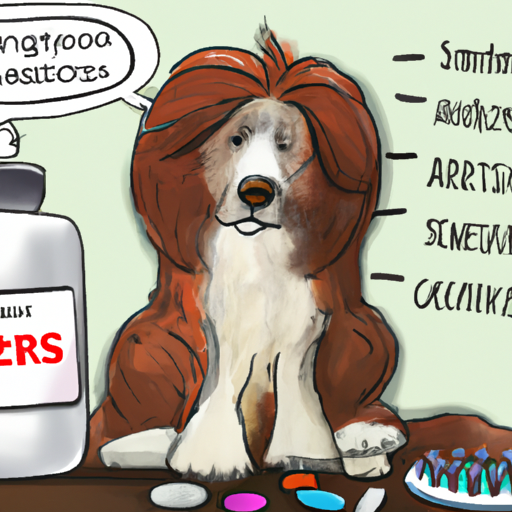As a caregiver, you always want the best for your furry friend. However, health issues are inevitable, and sometimes, steroids are part of the treatment plan. While these medications can provide significant benefits, they come with potential side effects you should be aware of. This article will walk you through the side effects of steroids in dogs, helping you make informed decisions about your pet’s health.
1. Understanding Steroids
Steroids, also known as corticosteroids, are a class of medications often prescribed by veterinarians for various conditions such as allergies, autoimmune diseases, and inflammation. They mimic the effects of hormones your dog’s body produces naturally in their adrenal glands.
When your dog has a disease or condition that causes inflammation, their body may not produce enough of these substances to counteract the swelling. That’s where steroids come in. They work by reducing inflammation and suppressing the immune system.
Yet, like any medication, steroids have potential side effects that can manifest in various ways.
2. Common Side Effects of Steroids in Dogs
The common side effects of steroids in dogs can be classified into short-term and long-term effects.
Short-Term Effects
The short-term effects are often noticeable within the first few days of starting the medication. These include:
- Increased Thirst and Urination: Steroids can make your dog thirsty, resulting in frequent urination.
- Increased Hunger: Don’t be surprised if your dog seems hungrier than usual. Steroids can increase their appetite.
- Panting: Increased panting is also common.
Long-Term Effects
Long-term effects can occur with prolonged use of steroids. These include:
- Weight Gain: Due to increased appetite, prolonged use of steroids may lead to weight gain.
- Behavioral Changes: Some dogs may experience changes in behavior, such as increased aggression or anxiety.
- Infections: Steroids suppress the immune system, making your dog more susceptible to infections.
The following table summarizes these effects:
| Short-Term Effects | Long-Term Effects |
|---|---|
| Increased Thirst | Weight Gain |
| Frequent Urination | Behavioral Changes |
| Increased Hunger | Increased Susceptibility to Infections |
| Panting |
3. Managing the Side Effects
The side effects of steroids in dogs can be managed effectively. Here’s how:
- Monitor Your Dog’s Water Intake: Keep an eye on your dog’s water intake and ensure they’re well-hydrated without overdoing it.
- Control Diet: Even with increased hunger, it’s crucial to maintain a balanced diet to prevent weight gain.
- Regular Vet Visits: Regular vet visits will help keep track of your dog’s health and catch any potential issues early.
- Slow Weaning: If your vet decides to stop steroid therapy, they will typically recommend a slow weaning process to prevent withdrawal symptoms.
4. Alternatives to Steroids
While steroids can be beneficial, some dogs may not respond well, or the side effects outweigh the benefits. In such cases, it’s worth discussing alternative treatments with your vet.
These may include other medications, dietary changes, or lifestyle modifications that can help manage your dog’s condition. Remember, each dog is unique, and what works for one may not work for another.
5. Frequently Asked Questions
Q1: Are the side effects of steroids in dogs reversible?
Most side effects of steroids in dogs are reversible and will resolve once the medication is discontinued or the dosage is reduced.
Q2: Can all dogs take steroids?
Not all dogs should take steroids. Dogs with certain health conditions such as diabetes, heart disease, or kidney disease may not be suitable candidates.
Q3: Are there natural alternatives to steroids?
Yes, there are natural alternatives such as certain supplements and dietary changes, but they may not be as effective as steroids for severe conditions. Always discuss any changes to your dog’s treatment plan with your vet.
In conclusion, while steroids can have side effects, they can also provide much-needed relief for dogs suffering from various conditions. As a responsible caregiver, your role is to stay informed, monitor your pet closely for any changes, and maintain open communication with your vet. With the right approach, you can ensure your furry friend gets the best care possible.



